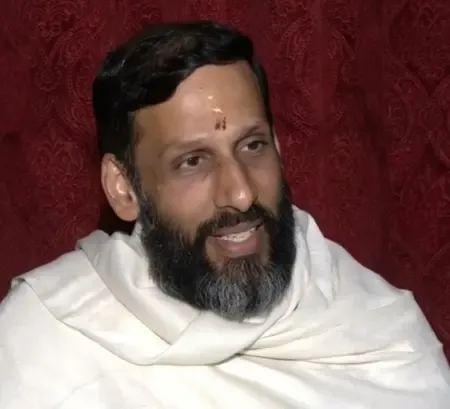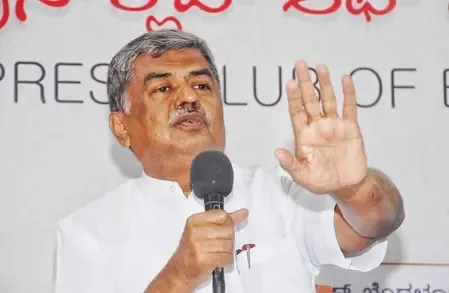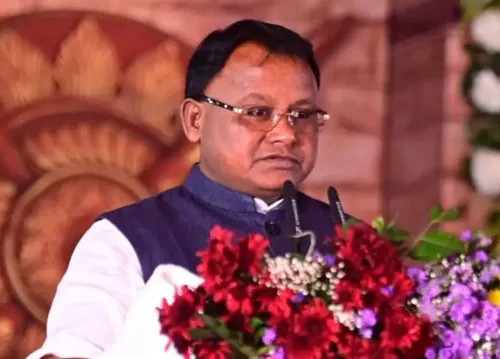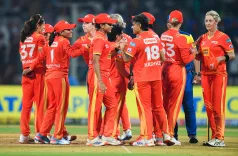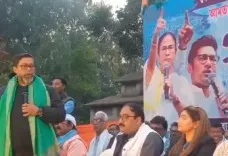Is Gujarat Developing a Scientific Speed Management Policy?
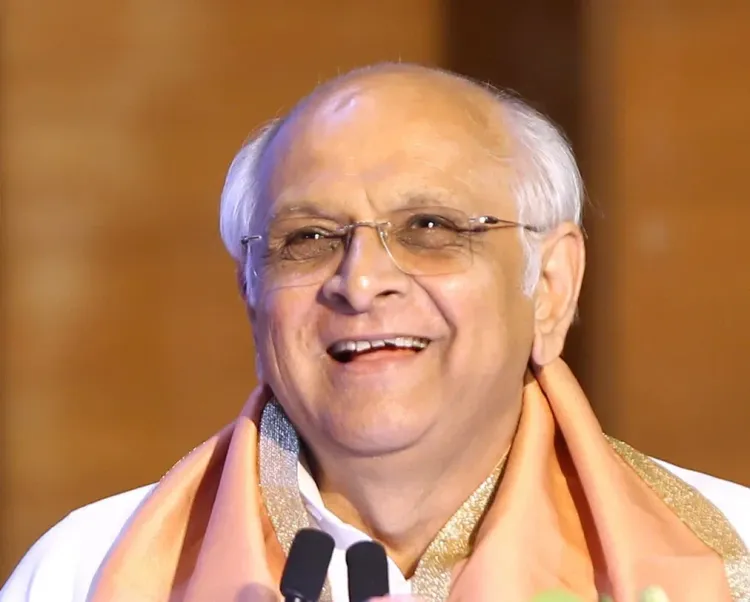
Synopsis
Key Takeaways
- Gujarat is developing a Speed Management Policy.
- Collaboration with IIT Kharagpur and CEE is crucial.
- Speeding accounts for over 65% of road fatalities.
- Data-driven strategies will be implemented.
- The goal is to halve road deaths by 2030.
Ahmedabad, July 30 (NationPress) Gujarat is preparing to formulate a detailed Speed Management Policy, leveraging technical insights from IIT Kharagpur, the Centre for Environment Education (CEE), and the Road Safety Network (RSN).
The declaration was made during a high-profile Speed Meeting focused on Speed Management Guidelines, organized by CEE Ahmedabad, which convened crucial stakeholders from various sectors including government, law enforcement, academia, and civil society.
In his address, Satish Patel, Commissioner of the Gujarat Road Safety Authority (GujROSA), highlighted that over 65% of road crash fatalities in Gujarat are attributable to speeding, as reported in the MoRTH Road Accidents in India Report 2022.
He stated, 'A data-driven policy shift, enhanced inter-agency collaboration, and scientific methodologies are vital. We aim to create a Gujarat-specific approach with support from IIT Kharagpur and CEE.'
The session included a presentation by Prof. Bhargab Maitra from IIT Kharagpur, who illustrated speed management strategies successfully executed in West Bengal.
He pointed out that Gujarat could adapt similar techniques to accommodate its varied road infrastructure and enforcement capabilities.
'State-specific zoning and data-informed strategies can revolutionize road safety. Gujarat possesses the potential to spearhead this transformation,' Maitra remarked.
Inspector General of Police (Traffic), M.L. Ninama, recognized the pressing need for action, asserting, 'Speeding ranks among the most lethal factors contributing to accidents. This initiative transitions us from reactive enforcement to proactive, scientific management.'
Kartikeya Sarabhai, former IAS officer and CEE Director, underscored the significance of public involvement.
'Through programs like AmdaVamdA, we engage the community in safety through education and awareness. Road safety is a critical aspect of sustainable urban mobility,' he stated.
The meeting also featured contributions from The Urban Lab Foundation (TULF), presenting data on infrastructure deficiencies, high-accident zones, and signage discrepancies throughout Gujarat.
Participants from various departments including Roads & Buildings, Urban Development, NHAI, Health, Education, and Police engaged in a fruitful discussion on cooperative enforcement and public engagement strategies.
With 17,419 road fatalities reported in Gujarat in 2022, alongside a 14.9% annual increase in accidents, the state is urgently pursuing evidence-based speed control measures in alignment with its goal to reduce road fatalities by half by 2030, in accordance with the UN Decade of Action for Road Safety.


